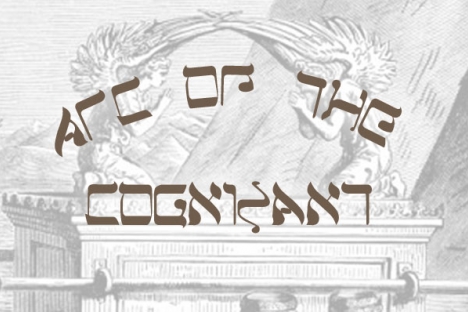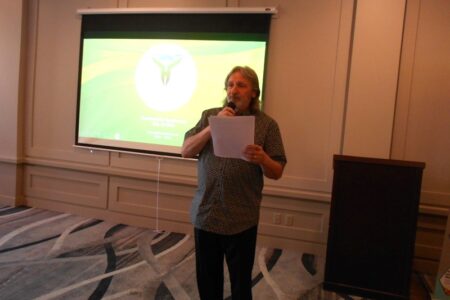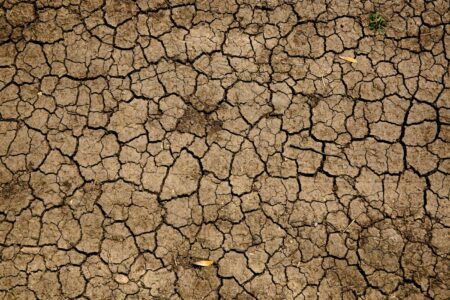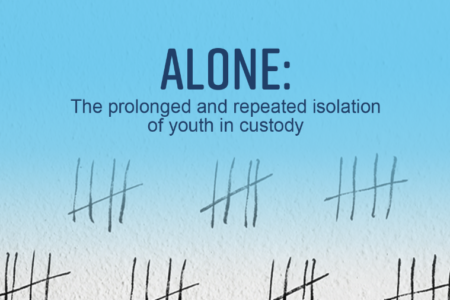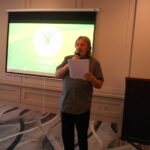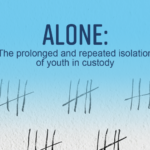COLUMN: Part One -- Human Consciousness, Under Construction
Human Consciousness, under construction:
Doing Good, Becoming Better, Following Leaders
I fought in the old Revolution
on the side of the ghost and the king.
Of course, I was very young
And I thought that we were winning.
I can’t pretend I feel very much like singing
As they carry the bodies away. — Leonard Cohen, The Old Revolution
Lament
I am at that age where one reflects on the dreams of youth and wonders how we got here, this point in time — when the dreams have failed, fallen into ash.
Humanity did not improve over my lifetime. Hence, I quote the poetry of Cohen, who wrote so well about disillusioned dreams. Another of his lines I quite love to cite: “They sentenced me to 20 years of boredom trying to change the system from within.”
At 18 years old, I believed that surely only improvement lay ahead for us, the human species.A non-hierarchical egalitarian society sharing wealth on a healthy planet was my dream. In 1969, the Aquarian age seemed so close.
I would not join the Establishment to alter it from inside; I would try to live outside it, as artists and intellectuals often do. It was not to be. I moved through socialism, to anarchism, to my present bewilderments.
The Movement of Human Being: up, down, sideways, not-at-all
Are humans getting better, worse, altered but no better, or not changing, as you read the historical record? (Of course, I have no idea what you read to learn history. That’s rather important, but nothing I can address. You have your preferred narratives.)
What you hold in your consciousness as history, is key. History – whose study I have made my life-long project – defies conclusions. It is not a book of lessons.
My opinion: “The better angels of our natures” do not seem to be winning out just now. I would like to know why that is.
Someone has some ‘splaining to do
So in this column, (#185 in the series of Arcs since 2012), the thesis I’ll develop is, to lay out two alternatives for an understanding of how the human world becomes better or worse. ‘Better’ for me means more-egalitarian, toward a fair sharing out of the earth’s material and toward good lives for all.
The two alternative explanations I have selected: One, materialist-scientific explanations that offers brain structure, nature, nurture, culture, and technology as the truest determinants of human consciousness; for materialist answers, neuroscience is the key.
Two – and perhaps readers think this one is self-evidently false – a religio-spiritual explanation of human minds, that finds inside our soul/being a capacity (or lack thereof) for transformation. People used to be tied in knots by questions, mysteries, of doing and being what the gods or God of their community wanted, and we secular-humanist moderns quite obviously do not.
“God” does not figure in most of the modern world’s questions about good; this in no way makes us superior to past society. Regarding the issue of modern versus premodern understanding of Self, please read Charles Taylor’s exquisite tome entitled Sources of the Self: the Making of the Modern Identity.Taylor is both historian and philosopher, incisive as both. God figures in his philosophy.
Privilege
A lot of modern thinking and philosophizing about good and evil is done by a specialized stratum of society. They are not farmers nor manual workers nor mechanics; they’re artists and academics and intellectuals (culture-crafters).
I am one of this stratum. This is full disclosure of my privileged social position. (Should I add: I am bourgeois, W.A.S.P., male, highly-educated, hetero-sexual)
Creative elites have dominated the unequal hierarchical societies that have been the historical human norm; they still do. Hierarchy is perennial.
It matters not at all whether a religious consciousness or a materialist mind is the dominant social and cultural mode, elites manage always to enjoy exalted places at the top of society’s status pyramid. This repeated pattern down the ages will occupy a lot of my attention.
There, at the peak of the social order, the elite enjoy immensely-better real opportunities, vigorous health, long life, and a lot of material wealth and experiential richness. One might say they enjoy an unfairly-large share of those, considering that they are much fewer in number than “the people below;” I do say that.
It’s unfair, and Charles Taylor explores our reaction to the injustice.
Facebook Encouragement: be good; try to be better.
Readers who seek uplifting messages, let me offer this observation from my own experience of Facebook (where I count only 52 friends): Facebook is a place where we urge one another to better lives and wiser actions and more love, with constant postings of profound sayings… Accompanied by gorgeous photos and art, there are many words of improvement I would never discover on my own I am sure.
I wish such earnest urging were all it took to transform humans. The sheer volume of this encouragement, this chorus of cheers for our better natures, would have to drown out the negativity which I find also on my pages in the news bulletins. But it takes more than well-crafted sentences, profound imagery, poetry and spiritual articulation, to move a human to be something higher than a human.
Let’s talk about the weather: is anyone to blame?
I am not changing the topic. Bear with me.
Hard to miss the weather topic in the last decade. More extremes, more volatility, more human suffering, all due to bizarre and harmful climate phenomena we have never seen arriving so close together.
[See this essay by a college student:
https://wsccfaculty.net/compgallery/a-world-in-trouble-warnings-and-denial/]
Scientists have told us that human actions were making a deep difference to the earth and making the probability of these events much greater. Many of our political rulers and capitalist masters fought against this view, denying that our economic activity could cause climate change. Here it is, the change predicted.
Why? Why could humans do nothing? – it seems to me we did not do much, so let’s not quibble, say we effectively did nothing — to alter our behavior and our systems so as to avoid this eventuality? We continued business as usual.
Two basic answers present themselves: blame only leaders; or blame all of us.
(1) it is not the fault of most of us, but only of a few, our elite, who allowed it.
(2) we are all responsible collectively, as a species, for defecating in our nest.
Humans: defining our nature, before planning improvements to it
So. Humans need to make some changes. Creativity will be crucial to designing changes.
Also knowing what the human being truly is, will point us in a direction worth going. To attempt to force ourselves into a mould impossible for our nature would be self-evidently worthless; you cannot make a diamond from clay.
What good is the human? Not much, say some; call them anti-humanists.
From a recent essay in the Globe and Mail:
“The anti-human argument is a needful retort to our species’ arrogance. However, humans alone have a chance of improving humans. Do I find that hopeful or depressing? … we must apply our flawed grey matter to fixing the messes we keep making. Narwhals aren’t coming to the rescue.”
— Tom Rachman, Opinion section, Feb. 18/23
This also in the same issue and section of the Globe:
“If we’re going to have a clue about how we can address humanity’s intensifying challenges – as an integrated, compounding system of crises (‘polycrisis’), we need to figure out why and how they’re becoming entangled. Dismissing the polycrisis as an ‘illusion’ will only help make its ultimate effects immeasurably worse. In the end, reality always bites.” – Thomas Homer-Dixon
Before we start making improvements to human beings, it helps to define this species of being. First I resort to neuroscientific tools of understanding.
Joseph Chilton Pearce: defining Humans with neuro-science
If Pearce is a name you have not heard, an author you have not read, I will introduce him: Joseph Pearce is one of the wise who do not lead. Add more names, if you will. The Dalai Lama? Eckhart Tolle? Albert Einstein? Charles Eisenstein? We all have our favourites. I chose Pearce for scientific expertise.
Most particularly, Pearce spent his career on understanding how nurture/ culture interacts with nature/ biology. The mind is intangible, formed by processes we are barely beginning to understand; but the brain, and the body it is a part of, is very tangible. It’s amenable to our materialist and/or physicalist scientific methods. Mind and consciousness seem to nest in material, in the brain. Our instruments for probing brain are miraculous.
Pearce wants to know — and teach — how the development of a human mind inside a brain and body is the responsibility of other humans, of what we surround ourselves and our children with. His research attempts to relate what is known about the physical nest of consciousness (neurons, synapses, electricity, bio-chemicals) to child-rearing, education, culture, and the wider environment a human person inhabits, that impact directly on physical brains and create “mind.”
Knowledge, wisdom, leadership
Pearce explains why we do not follow wisdom. He has an explanation of our sorry state of leadership: we allow humans moved by ‘reptilian-mind’ dominance, rule us — because we are similar to them. We are reptilian-minded.
He has written extensively about what a human is — in our biology and in our behaviour; responsibility for our plight originates in our culture/nature/ nurture, so to speak. Our human cultures empower the least-evolved brain-section in our heads to lead us now. We follow leaders who are no better.
Tools
Humanity has invented amazing tools. Our electronic technologies of screen communication are, for Pearce, a cause of our mental deterioration. The nurturing of our children is seriously damaged; we neglect connection to their souls and hearts (“female intelligence”) while “male intellect” dominates technological culture. Modernity is a harmful culture/nurture, in his view.
Bottom line for Pearce: the oldest part of our evolved brain, the reptile brain, is “in charge”. This is an inversion. Our highest, newest brain (neo-cortex) was not meant to serve the lower drives; yet in the instance of our political and economic ruling systems, the lower rules the higher.
Pearce in his own words
A selection of Pearce nuggets, a flavour of perspectives:
“Get rid of the words morality or ethics or any of these judgmental things — and look coldly at what is happening to this biological system. Heredity accounts for about 65 percent of a young person’s capacity, intellect, intelligence, abilities, but the 35 percent furnished by the environment determines whether or not the 65 percent gets any chance to unfold.”
“Today there are actually entrepreneurs in the marketplace selling programs to corporations detailing how to exploit the child mind! In other words, we are totally set up right now as a consumer society, and changing that fact would literally threaten our economy. I don’t think you can change this reality on any large-scale basis. You can only try to work around the edges and hope to reach one individual at a time. No one’s going to change the overall system. All we can do is appeal to parents who have ears to hear and who are willing to take the risk of getting their children out of this madness and protect them against it.”
Note his comment: “No one’s going to change the overall system.” Pearce is not an optimist about the human condition; he does not see us doing well in future. My regular readers will intuit that is why I am drawn to this scientist.
https://dome.iamheart.org/The_Heart/articles_joseph_chilton_pearce.shtml
“There is no logical, rational, pre-structured criterion “out there” with a divine plan. There is no truth “out there” which our weak minds or souls eventually run across. There is this casual, haphazard, amoral process that leaps the logical gaps and brings about newness. And the procedure’s only demand is that given talents be invested, risked, doubled, the possibilities explored…
“[P]eople respond automatically to their given circle of representation and strengthen it by their unconscious allegiance. Since their cultural circle is made of many conflicting drives for their allegiance, their lives are fragmented and ambiguous.”
The Crack in the Cosmic Egg: New Constructs of Mind and Reality
https://ratical.org/many_worlds/JCP98.html
https://ttfuture.org/academy/joseph-chilton-pearce/introduction-joseph-chilton-pearce
Pearce applies neuro-scientific discoveries about humans – for example, that much of a human heart is composed of neurons (cells like brain cells) – and allows himself a freedom to conjecture the meaning of that.
“Pure” scientists cannot do what Pearce does with the discoveries made in laboratories or by research into behavior; the thinking individual, like Pearce, can attempt to use scientific facts in philosophy – but the materialists aren’t “allowed” to do that by the rules for “being scientific”. Some scientists dislike Pearce’s philosophy.
“Tragedy occurs when the psychic structure remains embedded in the lower structure and that shift or transformation of the lower into the higher does not take place….A series of events and phenomena without historical precedent in the genetic system has locked the psyches of more and more of our children into total identity with the reptilian system each year. This is a biological breakdown, not a moral failure. The maintenance system with its drive for food, territory, and sexuality has little modification by the higher structure.”
[Read the piece by Pearce here: https://ttfuture.org/files/2/members/sym_jcp_awakening.pdf]
Pessimism
If one dislikes the leadership and dislikes the followers — and cannot choose which is more responsible for the sorry state of humanity – blame our lower brain. Says Pearce, “…I don’t think as we are turning our forces now that we’re doing ourselves any good whatsoever. I feel rough times ahead.”
Charles Eisenstein, the eternal optimist, is upset by Pearce for his perceived pessimism. In an interview, the former tries to convince the latter it is not dark ahead. Pearce is a kind man, and lets Eisenstein have his sunny outlook.
https://charleseisenstein.org/essays/we-are-unlimited-potential-a-talk-with-joseph-chilton-pearce/
But I give Pearce the final word: “I feel quite pessimistic, actually. We are not living up to our potentials, and we seem to be willingly following a path away from them.”
(some books by Pearce: Magical Child; Evolution’s End; The Heart-Mind Matrix; The Death of Religion and Rebirth of Spirit.)
Leadership: origin of all human woe?
One answer to the why question – why is the “polycrisis” upon us – is this: only a few of the human species are responsible. Those few are the leaders with power over us. They make the big choices, the ones that take us into the chaos.
Are you generally impressed by the kind of leaders humans follow? Me neither. Why are our leaders so awful, why do we allow ourselves to be led to stupid ends?
Our leaders have successfully prevented any alteration of human economies that would hurt their power and privileges, they misled us and stopped us making better choices, so it is ultimately their fault, not ours, making us impotent to change. The leadership of our systems must own more blame.
The easy villain is systems, capitalist, corporatist, colonialist and so forth. They make us what we are, for better or worse. Our leaders maintain these systems; they benefit most. The fault is theirs.
But I do not accept this explanation. To blame only the leaders and not followers is to accept the impotence of the latter, and history doesn’t support that reading. We are not impotent. We can refuse leadership that harms us and our habitat.
Also, humans love wise individuals. We offer them our admiration, respect, awe. A few become their disciples and acolytes. The wise do not, however, lead us. On whom can we blame that failure to follow wisdom? If we know the good but choose something less, are we forced to it?
Followers: why so stupid?
The second answer — the other possible explanation of human incapacity and defect –posits: the masters surely did what they could for their own best interests, but they couldn’t force us to act against our best intrinsic wisdom.
Ultimately the choice is down to us: humans lack the qualities (intelligence, motive, compassion, love, capacity-to-change?) and so, we walk destructive paths “because that is in the nature of our humanity.”
To be human is to eventually extinguish our own species by the accumulating mistakes in all categories of living, until the sum is an unlivable environment. This seems to me supported by the evidence in the record of human history. But then, I am a pessimist, I know. (In the Appendix, readers will find the optimists.)
Leaders and Followers: Equality and Creativity?
“Civilization is the flower of humanity; its roots are not planted in societies of equal human beings. All our greatest cultural glories are growths out of hierarchy. Those who make our culture brilliant – our arts, architecture, sciences, knowledge — in short, all beauty and creativity we humans have to show – have done it on the backs of tens of thousands of humans whose lives are chained to tedious labour and meaningless miseries. How could it be otherwise?”
— Prince Vil, in Wahladesshla: an other-worldly fable
“In the condition of absolute human freedom, where there is no alienation nor exploitation of men and women, an individual will build bridges and roads in the morning, perform music at mid-day, climb mountains in the afternoon, and write literature in the evening.”
— Karl Marx (paraphrased), in The Grundrisse
In the two opinions in the epigraphs above, which vision of human reality seems to you the most true to our history, and to your notion of human being?
Is it truer to say all humans can and will create wonderful things when they are liberated from the burden of a social hierarchy to which they must submit – as Marx believed?
Or is it truer to find human nature as it is in recorded history – we cannot produce the fantastic array of human creativity seen in the past, from ancient Egypt and China to this present day, unless some humans serve others?
Perhaps your answer reveals more about you than about the truth of the human condition. But the question is intriguing, is it not?
We may dream of a world of justice where all humans are treated as having equal value and no person dominates another with superior power and wealth. It is a lovely vision. Would that world still have the pyramids, music, dance, cathedrals, sciences, paintings, sculpture and literature? We have, as a species, created all this under conditions of unfair shares of power and wealth.
We live in a society with an elite few who rule. They make decisions that all of us live with, suffer from, or benefit by. How has that worked out for us?
I have always desired social justice and equality in the human world. It was my youthful dream. But I have assumed Marx is correct. If he were wrong, maybe I’d lose that desire for equality, since it would come with a price of failure of human creativity. Equality for all and a human world bereft of many of its cultural gems.
A parable by U. K. LeGuin
The human moral dilemma posed by the choice — between inequality among individuals encased in a social hierarchy coexisting with creativity, and equality accompanied by mediocrity in cultural and scientific discovery — is real. It is not a hypothesis we can test with a real-world experiment.
There is a parable of a society that seems perfect, but has a terrible secret at its heart to explain why it has nearly created utopian lives for all its members. The best telling of the story that I am familiar with is by Ursula K. LeGuin, in her short tale entitled The Ones who walk Away from Omelas.
You can read it here: https://shsdavisapes.pbworks.com/f/Omelas.pdf
We have no sample of a society of nearly-perfect-equality to compare with the real historical records of unequal societies where we know what creativity existed. A good society with fairness for all and low levels of art and science, or, a less-good one where terrific creative genius flourishes among a few?
This is not a choice one would ever want to have to make. I know I would not.
Would you be one who exiled yourself from Omelas? The story captures nicely, but inexactly, how humans face a choice between social order based on injustice and inequality on the one hand, with the attendant creativity that seems a consequence of hierarchy, or, choose an order of equality which lacks much of the creativity that hierarchy seems to encourage.
Creativity and the polycrisis
Egalitarianism disempowers creativity: agree or disagree. I disagree.
Human beings living under conditions of equality, without hierarchy, would put limitations on our species’ creativity, if one view of our history is correct. To limit our creativity in this time of polycrisis would be self-defeating.
I do not agree with that reading of the historical record so boldly spoken by Prince Vil in my quotation above. If he were correct, then it follows that if we create equality, or something much closer than what we have, we would have fewer creative geniuses, less art, less science, fewer flowers of civilization.
We need creative solutions to our crises. But the socio-economic facet of our polycrisis is in fact an obscene inequality among humans. I would prefer limited creativity, even among the inventors of new technology, to continued inequality. Even if we might forego thereby some possible new invention of machinery or chemistry, even some new energy source which might combat climate change, I would still advocate less hierarchy. It was my youthful dream and I have not abandoned it.
But there is no choice, between social justice or scientific advancement, forced upon us. We can have both.
End Part One


